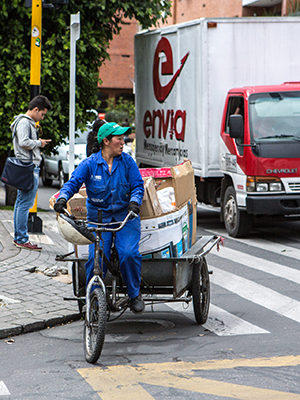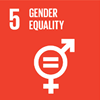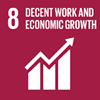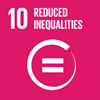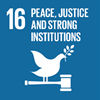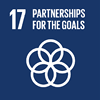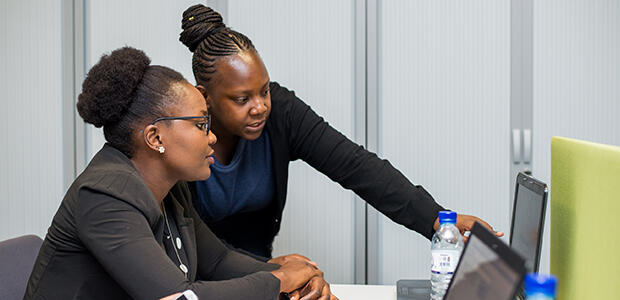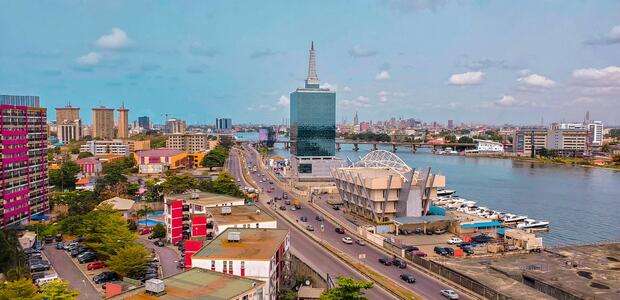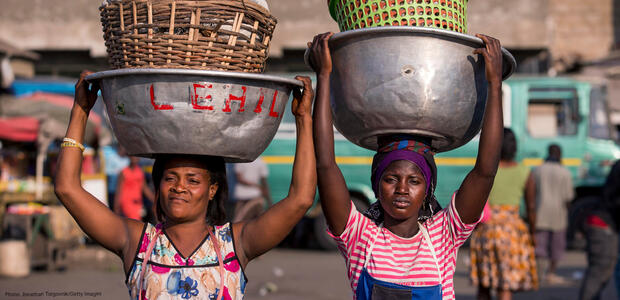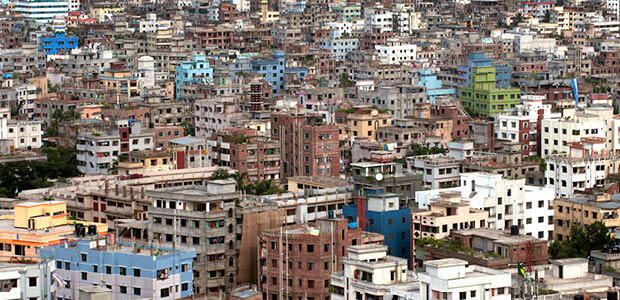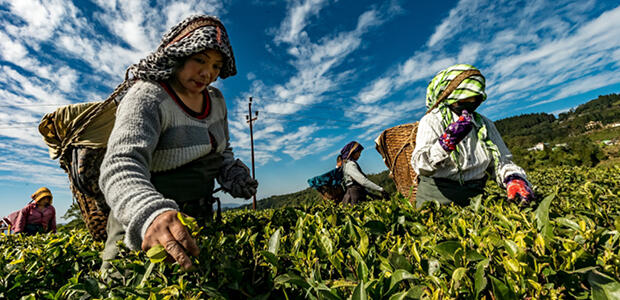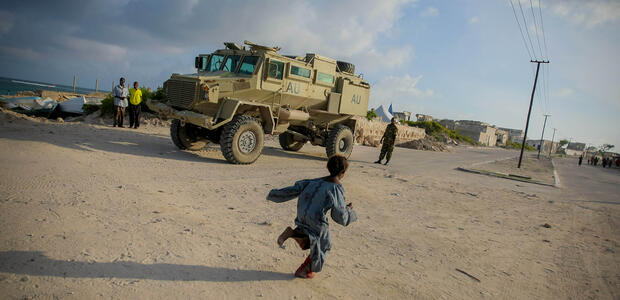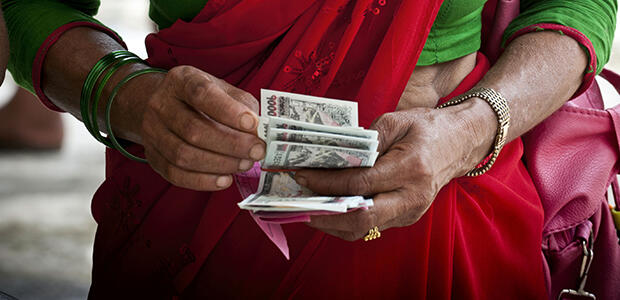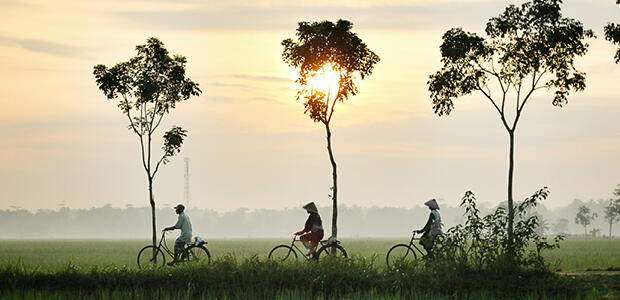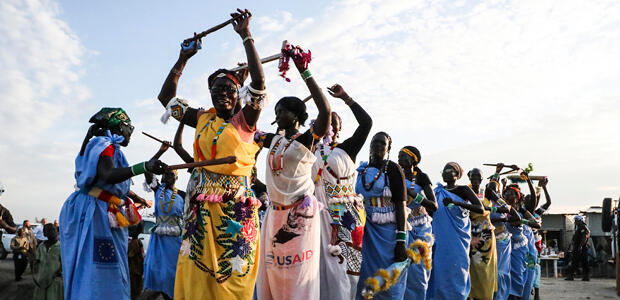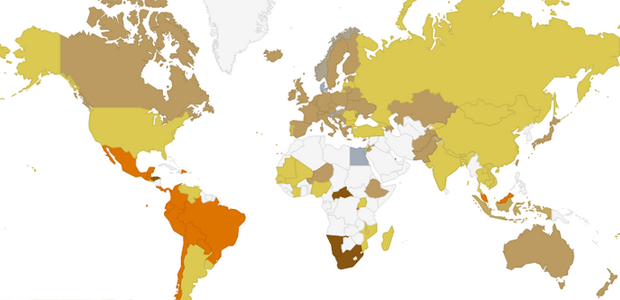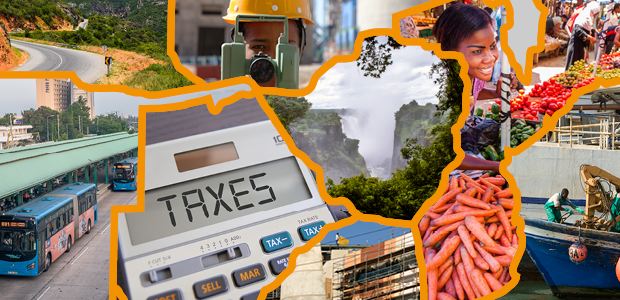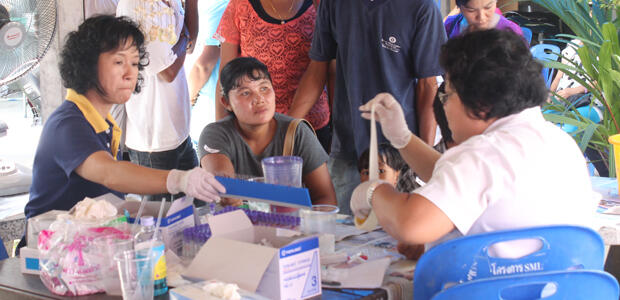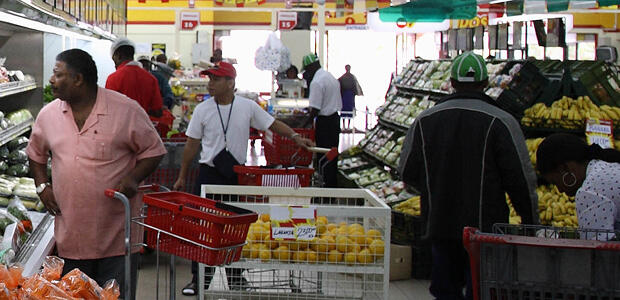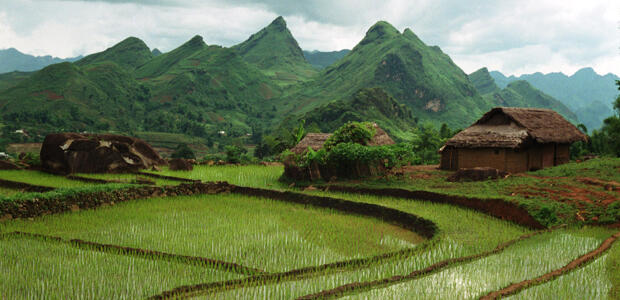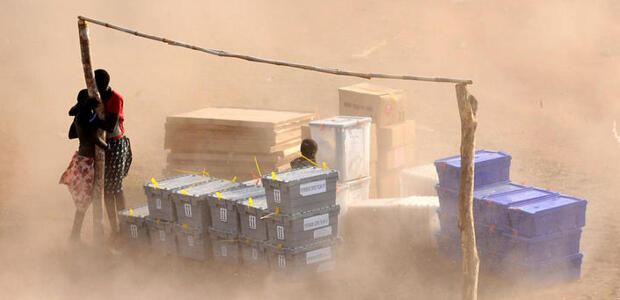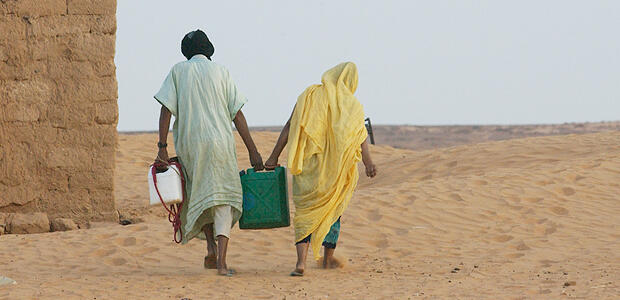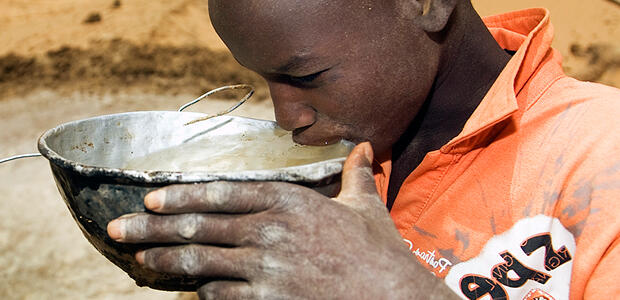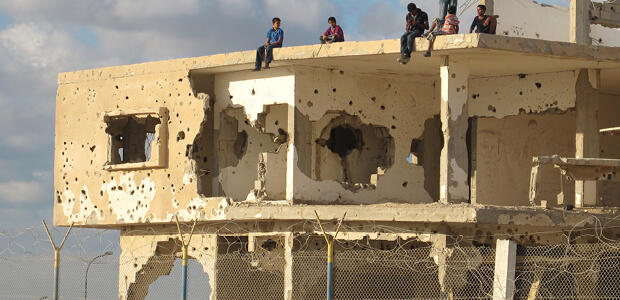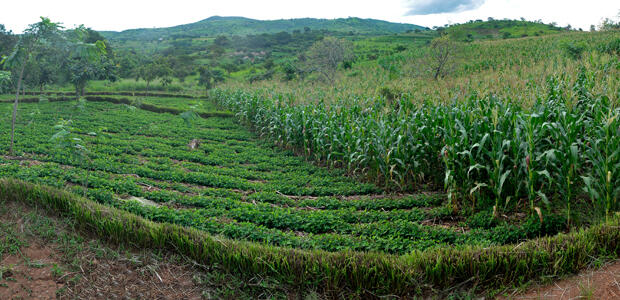Transforming economies, states, and societies
At its core, development is about the well-being of people. But it is also about creating societies which provide fundamental rights and just social political outcomes. Sustainable and inclusive development requires transformative changes across three fundamental areas: in the structures of economies, in the state, and institutions that govern social and market interactions and broader developmental processes, and in society itself. These transformations are central to the achievement of the United Nations’ 2030 Agenda for Sustainable Development and the Sustainable Development Goals (SDGs).
The 2019–23 UNU-WIDER work programme focuses on the interlinked development challenges of transforming economies, states, and societies and maps them against SDGs 5, 8, 10, 16, 17. By mobilizing research evidence for action through the ongoing processes in the UN and its member states, the institute continues to work with stakeholders to strengthen capacities for research, technical, and policy analysis, and facilitate exchange of experiences and knowledge towards bold and collaborative development solutions for countries and regions around the world.
Click on the table below to explore our current work or scroll down to search past projects.
158 active and previous projects
Filter by...
2018-19
Conference on transforming economies – for better jobsThe creation of productive jobs for both men and women are essential preconditions for the achieving the Sustainable Development Goals (SDGs) on decent work and gender equality. The conference engages current debates around the future of work in the...
2018-19
2018 Nordic conference on development economicsThe conference aims at bringing together Nordic and international scholars for the exchange of ideas and discussion of recent results within theoretical and applied development economics research.
2016-17
Conference on migration and mobility – new frontiers for research and policyMigration and mobility are key facets of our increasingly globalized world, posing challenges but also offering opportunities. For migrants, this may include economic and social mobility, as well as improved physical security and an escape from...
Transformation
Natural resources, structural change, and industrial development in AfricaThis project focuses on three specific areas that impact the pace of structural transformation and job creation in five emerging African natural resources economies: Ghana, Mozambique, Tanzania, Uganda, and Zambia.
2016-17
Conference on responding to crisesThe ‘Responding to crises’ conference aimed to improve knowledge about ongoing, unexpected, and future crises, and to discuss the options available for responses by governments, international agencies, NGOs, civil society and private citizens. The...
2016-17
Conference on human capital and growthHuman capital has been identified not only as a key determinant of growth and poverty alleviation, but as critical for human development. The United Nations Millennium Development Goals (MDGs), and now the Sustainable Development Goals (SDGs), have...
Inclusion
Disadvantaged groups and social mobilityThis project has three main objectives in line with UNU-WIDER’s tradition in the area of inclusion and horizontal inequality: (1) to shed further light on the extent to which inequalities run along ethnic, gender, and other communal lines; (2) to...
2014-15
Conference on inequality - measurement, trends, impacts, and policiesMany low- and middle-income countries are achieving good rates of economic growth, but high inequality remains a priority concern. Some countries meanwhile have low growth, high inequality, and pervasive poverty―often linked to their fragility. There...
Transformation
Structural transformation and inclusive growth in Viet NamThis project responds to the SDG’s call for a strengthening of data collection and capacity-building in Member States. Timely and better disaggregated, country level data aids the search for an evidence-based course to realizing economic...
Inclusion
World inequalityThe purpose of this project is to advance data collection, measurement, and research regarding the development of inequality in the world. A major focus in this research area is the maintenance, updating, and development of the World Income...
Transformation
The growth-employment-poverty nexus in Latin America in the 2000sLatin America in the 2000s witnessed an unprecedented period of growth with poverty and inequality reduction. Latin America also suffered from the economic crises in Europe and the United States from 2007/08 onwards. The questions asked in this...
Transformation
Macro-economic management (M-EM)This project explores how macroeconomics of development is evolving; what the policy priorities are as the global economy undergoes transformation (with more countries moving from low- to middle- income status); the impact of global economic...
Transformation
Development policy and practice: competing paradigms and approachesThis project uses UNU-WIDER’s high level of convening power – its ability to mobilize senior figures in the development policy debate from different paradigms – and its ability to stand aside from the fashions and pressures of the academy, to bring...
Inclusion
Gender and developmentSubstantial progress toward gender equality and women’s empowerment has occurred over the past four decades, but key gaps, both in opportunity and capability, persist between males and females in all countries. This project focuses on generating high...
2012-13
Conference on inclusive growth in Africa - measurement, causes, and consequencesapid and sustained poverty reduction requires ‘inclusive growth’ that allows people to contribute to and benefit from the development process. Africa’s economic performance has improved considerably since the 1980s and early 1990s. Nevertheless, many...
2012-13
Experimental and non-experimental methods to study government performance: contributions and limitsIn recent years, field experiments using randomized trials have gained increasing popularity in the field of development economics. In particular, scholars have argued strongly for their use as the best means of identifying ‘what works’ in foreign...
2012-13
Africa's emerging middle-classSub-Saharan Africa currently is facing a range of demographic and socioeconomic shifts that hold important implications for both the region’s economic and political development. One of these shifts has been the emergence of a sizeable and dynamic...
2012-13
Reconciling Africa’s growth, poverty and inequality trends: growth and poverty project (GAPP)Despite decades of research and advances in data and methods, measuring poverty and reconciling this with patterns of economic growth remains a complex and contentious issue. UNU-WIDER’s Growth and Poverty Project (GAPP) re-examines Africa’s growth...
2012-13
Building state capability through Problem-Driven Iterative Adaptation (PDIA)As a sub-component of the Research and Communication on Foreign Aid (ReCom) programme, the PDIA project feeds into the themes: governance and fragility & social sectors. An integral part of development is the expansion of capability of the state to...
2010-11
The Middle East, North Africa, and climate changeSustaining development in developing countries has never been as complicated a task as it is today in the face of a world characterized by tremendous competition over resources that are becoming scarcer. Climate change and its impact on water...
2008-09
African development - myths and realitiesExisting research on Africa has produced a seemingly endless list of reasons why African growth and poverty reduction record has lagged behind that of other regions of the developing world. This project looks at the reasons put forward for Africa’s...
2008-09
Frontiers of poverty analysisThe aim of this project is to take stock of the often overlooked options now available to researchers at the frontiers of poverty analysis and to illustrate their use in developing country contexts. The main project activity will be an international...
2008-09
Development in an urban worldIn 2007 the number of urban inhabitants will surpass rural dwellers as a percentage of the total world population. By 2030 the proportion of people living in cities globally is expected to reach 61%, with almost 80% of urban dwellers living in less...
2008-09
Promoting entrepreneurial capacityEntrepreneurship can play an important role in structural economic change and in improving wellbeing. Governments and international institutions are investing increasing resources to promote entrepreneurship. This project aims at a greater...
2008-09
Role of elites in economic developmentTheir influence of elites in politics, government, business, and the media profoundly influences the direction of economic and social activities. In some countries, the preferences of elites are closely aligned with the national interest. Elsewhere...
2008-09
Reflections on transition - twenty years after the fall of the Berlin wallThe fall of the Berlin Wall in November 1989 was a defining moment in the transition of former socialist countries into market economies. To mark the twentieth anniversary of this historic event, UNU-WIDER is organising a two-day conference to review...
2006-07
Country role models for development successIn the development literature, some countries are cited more often than others as examples of development success. These countries are believed to have policies and institutions that could be transferred, at least in part, to less successful...
2006-07
Southern engines of global growthThe project centers on the inter-linkages between the major developing countries of Brazil, India, China and South Africa and the global economy, with a special emphasis on the implications of China’s growth on smaller economies and the rest of the...
2006-07
Fragility and developmentIn recent years there is a growing concern within the international donor community regarding the plight of a special group of countries labeled as 'Fragile States'. These states, which according to current donor lists currently numbers more than 40...
2006-07
Conference on aid - principles, policies and performanceAid is one of the most challenging development issues facing the international community. There is now a pressing need to evaluate performance to date, and the future for aid in light of recent events such as the post-Monterrey consensus to...
2006-07
Gender and food securityUNU-WIDER’s recent project ‘Hunger and Food Security’ exerted a strong attraction for academia, international organizations (FAO, WFP, and UNCTAD), civil society organizations, and the media. The first project meeting, held in Jaipur in March 2005...
2006-07
Designing Africa's poverty strategies - expanding local capacity to simulate policy optionsIn 2003, UNU-WIDER launched its project on Designing Africa’s Poverty Strategies: Creating the Capacity for Policy Simulation to develop economic modelling capacity in African countries. The project director provided regular training workshops (14...
2006-07
Health inequalities and developmentThe purpose of this project was to investigate issues related to health inequality. Although health is an important indicator of overall wellbeing, it is only recently that research has focused on health inequality. This project brings forth issues...
2004-05
Jubilee conference - WIDER thinking aheadAbout 200 participants attended the conference, more than 150 of them coming from outside Finland. The conference was open to younger researchers as well as established scholars. A list of participants is available on WIDER’s website. Conferences...
2004-05
Personal assets from a global perspectiveThe project aims to assemble data about the distribution and composition of personal assets in developing, transition, and developed countries and to study the implications of personal asset-holding for economic development. The most important asset...
2004-05
Unlocking human potential conferenceConferences: 17 September 2004 EGDI-WIDER Conference on Unlocking Human Potential: Linking the Informal and Formal Sectors
2004-05
Inequality and poverty in ChinaGetting an accurate picture of poverty and inequality trends and patterns in the world’s most populous country is central to understanding changes in global inequality and poverty – these alter significantly when China is included or excluded. China...
2004-05
International mobility of talentInternational development in the era of globalization needs an effective transfer of knowledge and human capital from the main centres of knowledge creation to developing countries for supporting their growth and development process. Most of the new...
2004-05
Millennium development goals - assessing and forecasting progressAchievement of the MDG goals by 2015 is an ambitious undertaking. The donor community is now mobilizing resources behind the goals, and efforts to implement the goals are now underway at national and international levels. It is inevitable that...
2004-05
Development aid - a fresh lookDevelopment aid has become an increasingly hot topic in international research and policy circles, especially following the adoption of the Millennium Development Goals. Donors are paying increased attention to how they allocate aid across countries...
2004-05
Financial sector development for growth and poverty reductionThe mobilization of domestic savings for private investment plays a crucial role in achieving growth and poverty reduction; this is demonstrated by the historical experience of the now developed countries as well as East Asia. However two problems...
2004-05
Hunger and food security - new challenges and new opportunitiesMillions of people remain desperately food insecure, and over a decade of agricultural-sector reform appears to have achieved little in the way of improving entitlement to food in many countries. This project will investigate why progress in...
2004-05
Tax policy reform in developing countriesSee publications for work connected to this project.
2004-05
Institutions for economic development - theory, history and contemporary experiencesCreating better institutions for development has come to the fore in recent years, reflecting the often poor results of economic reform programmes that failed to take account of the need to develop appropriate supporting institutions. This project...
2004-05
Impact of globalization on the world's poorGlobalization offers new opportunities for accelerating development and poverty reduction. And there is much concern about the distribution of benefits; in particular whether the poor gain from globalization, and under what circumstances it may...
2002-03
Conference on sharing global prosperityConferences: 6 September 2003 WIDER Conference on Sharing Global Prosperity
2002-03
Reconstruction in conflict and post-conflict societiesReconstruction from conflict is a complex and demanding task, and a major challenge for the UN system as well as the wider donor community. National authorities and their donor partners are faced with multiple priorities - rebuilding infrastructure...
2002-03
Global trends in inequality and povertyThe scale and causes of international income inequality and poverty continue to be much debated. Yet, the quality of the analysis and data underlying this debate still leaves much to be desired. Accordingly, this project will collate poverty data to...
2002-03
Spatial disparities in human developmentMany developing and transition countries have considerable regional variation in average household income, poverty, and health and educational status. National human development indicators can therefore mislead policy-makers when large regional...
2002-03
The sustainability of development financingThe real value of official aid flows fell for much of the 1990s, and private capital flows to low-income countries remain mostly limited. The decline in aid flows may endanger the development process, since they finance much of the development budget...
2002-03
The impact of the WTO agreement on low income countriesWhen the Uruguay Round was being negotiated and it was coming to a close, a number of estimates were made about the impact of the agreement on poor countries. Many assessments indicated that there would be a net loss for them while others came up...
2002-03
Social development indicators - measuring human well-beingSummary measures of human well-being are increasingly used to compare and monitor performance within and across countries. The UNDP's Human Development Index (HDI) is one of a number of measures which have done much to refocus attention on the...
2002-03
Long-term development in the CFA-zone countries of Sub-Saharan AfricaMembers of the CFA-zone enjoy currency convertibility, fiscal and monetary policies which are more prudent than SSA as a whole, and a large amount of financial and technical assistance. These advantages do not appear, however, to have resulted in...
2002-03
Innovative sources for development financeA joint project with the United Nations Department of Economic and Social Affairs (UN-DESA) in response to the UN General Assembly call for a rigorous study on ways to increase external finance for developing countries, particularly to meet the MDGs...
2000-01
Refugees, international migration and povertyFleeing poverty, violence and 'ethnic cleansing' millions of people leave their homes every year in search of safety and economic opportunities. In contrast to the migrations of the nineteenth century today's migrations often take place through...
2000-01
Growth and poverty conferenceConferences: 25 May 2001 WIDER Development Conference on Growth and Poverty
2000-01
Debt relief conferenceConferences: 17 August 2001 WIDER Development Conference on Debt Relief
2000-01
Globalization and the obstacles to the successful integration of small vulnerable economiesA key challenge for policy makers is how to bring about the successful integration of the less developed countries into the international system. Many of the obstacles to the meaningful participation of vulnerable developing economies in the...
2000-01
Insurance against povertyHouseholds in developing countries face many risks. Informal insurance mechanisms (marriage, the extended family, and investment in social capital) provide some protection but are weak in the face of major calamities that affect households en masse...
2000-01
Micro-simulation of tax benefit reforms in russiaMicro-simulation models play an important role in policy analysis in developed economies, particularly in connection with the distributional impact of tax and benefit reforms. The objective is to show how the changes affect different households in...
1985-97
Building African capacity for policy simulationWith the introduction of Poverty Reduction Strategy Papers (PRSPs) and Millennium Development Goals (MDGs), governments in Africa and other developing countries have been under great pressure to devise effective policies that will reduce poverty and...
2000-01
The impact of privatization and regulation of utilities and social services in Latin AmericaLatin America has now privatised a large number of utilities (water, electricity, transport, and telecommunications) and now makes more use of market approaches to delivery in the social sectors (education and health). Privatisation has major...
2000-01
Information technology and global economic developmentProject Meetings: 12 January 2001 Project meeting: The New Economy in a Global Perspective Conferences: 10 May 2002 WIDER Development Conference on New Economy in Development
2000-01
Capital flows to developing countries since the Asian crisis - how to manage their volatility?The project intends to fill the gaps in knowledge in two related areas: 1) what determines decisions by lenders/investors to enter or withdraw from individual developing countries? 2) what are the policy implications for macroeconomic and financial...
2000-01
New fiscal policies for growth and poverty reductionMany developing countries are characterised by weak budgetary and revenue institutions, insufficient public spending on priority investments and the macro-economic instability associated with repeated fiscal crises. Moreover, the recent external...
2000-01
Property rights regimes, microeconomic incentives, and developmentA property rights regime covers rights to use, lease, donate, bequest, and sell assets or collect the incomes generated by assets. A clear and transparent property rights regime facilitates investment and economic growth. While private property is...
2000-01
Why some countries avoid conflicts while others failPrevious UNU-WIDER research has shown that the risk of internal conflict is high in low-income societies rich in natural resources and characterised by ethnic fragmentation. Yet for each country in conflict there are many others with similar...
2000-01
Institutional capabilities, reform ownership and development in SSAPast policies, an erroneous approach to adjustment, and 'geography' are repeatedly cited as explanations for Africa's poor performance. But, weaknesses in the institutional capacity of the African State may be as important. In particular, economic...
1998-99
Information technology - growth and employmentIt is a widely held opinion among policy-makers and social scientists that the so-called 'information revolution' is having a substantial impact on the world economy. It is often also presumed that this impact is beneficial to all those countries...
1985-97
Income distribution and social structure during the transitionSee publications for work connected to this project.
1998-99
New roles and functions for the UN and the Bretton Woods InstitutionsIn a world beset by the effects of the Great Depression and war, the 'Keynesian message' strongly inspired the post-war policy agenda and the structuring of the UN/Bretton Woods system. In contrast, an increasing gap has been emerging between the...
1998-99
EMU and its impact on Europe and the developing countriesThe single European currency, the euro, implies deep changes in the pattern of economic integration in Europe, as well as in the world financial system. These changes will have important consequences on developing countries as well. In Europe, the...
1998-99
Rising income inequality and poverty reduction - are they compatible?Over the last several years, the donor community has increasingly focused its efforts on poverty eradication. Meanwhile, income inequality appears to have been rising in many developed, developing and transitional countries. Economic theory explains...
1998-99
Transition from below - the role of the new private sectorMuch of the discussion about privatization in the former socialist economies has focused on the divesture of state-owned enterprises (SOEs). While this approach has been inspired by the belief that privatization will solve all production and...
1998-99
Underdevelopment, transition & reconstruction (UTR) in SSAThe development prospects in SSA are particularly problematic in those countries which adopted Soviet style planning in the 1970s, i.e. Angola, Congo, Eritrea, Ethiopia, Guinea, Guinea-Bissau, Mozambique, and Somalia. The policies of these countries...
1998-99
Development problems in natural resource-based growth modelsIn the top and bottom ranks of the GDP/c league, one finds countries which are completely devoid of natural resources, as well as others where the natural wealth of the country has played an important role in development. The evidence reviewed in the...
1998-99
Institutions, group behaviour and developmentInstitutions, such as firms, families, contracts, rules, regulations, values, and social norms, are fundamental for economic development. They influence both the level and the pace of economic growth, which can and frequently does trigger...
 Join the network
Join the network